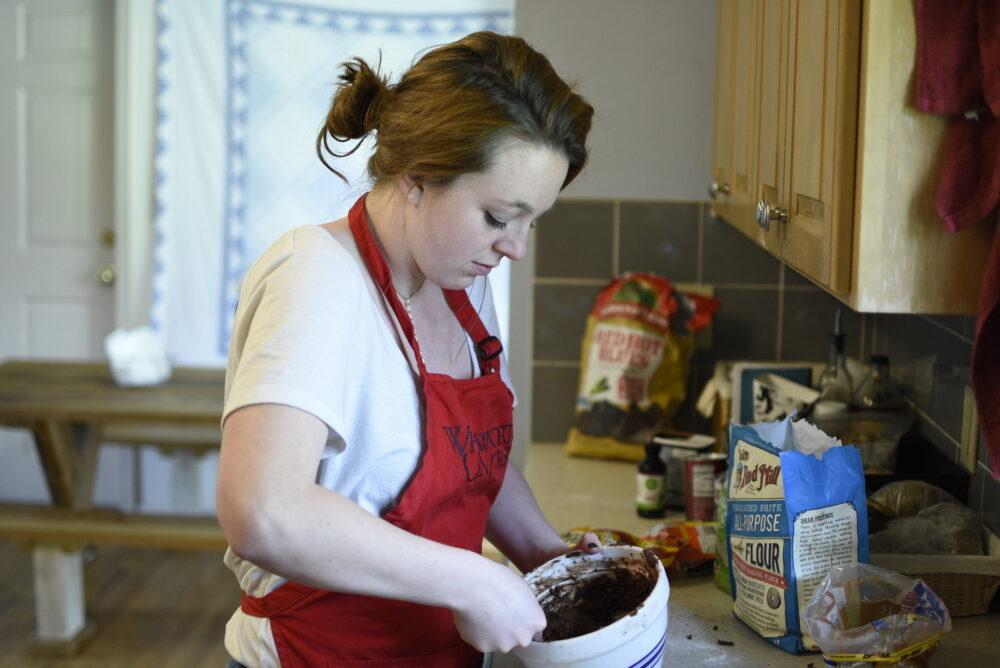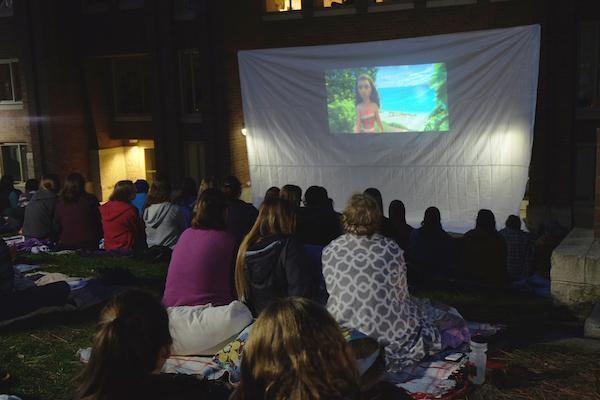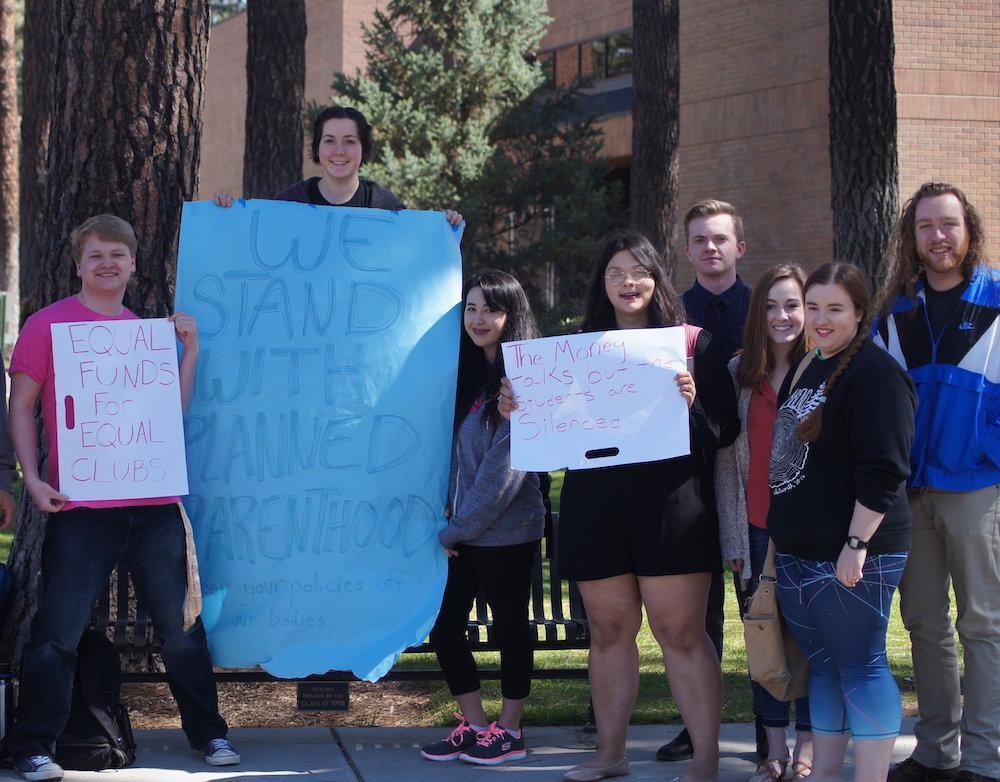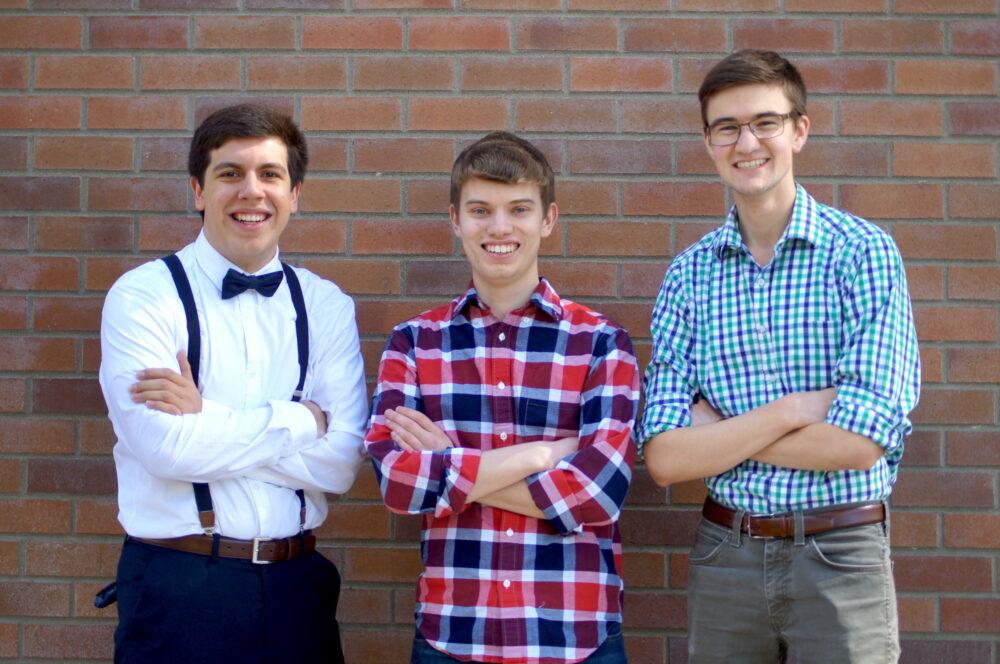
Students, staff and faculty were a part of the Women’s March on Jan 20 in not only Spokane, but Washington, D.C. as well. Participants joined the movement to send a message to the new administration on their first day in office.
“I loved the diversity of the people that were there,” sophomore Whitney Hunt said of the Women’s March in Spokane. “There were young people, old people, men and women, religious people and non-religious people. It was super cool.”
The march unified people and sent a message to Donald Trump, Hunt said.
“I didn’t know what to expect going into it, but it was a lot more positive than I thought,” sophomore Carly Klassen said who also joined the women’s march in Spokane.
During the march, Klassen talked with a woman who she later found out was an atheist. Even though Klassen is a Christian, she said she felt no tension because they were both there for a common goal.
“Everyone wanted to be there to support and empower one another,” Klassen said, “There wasn’t any negative talk or energy.”
According to the Spokesman, an estimated 8,000 people attended the women’s march in Spokane. Hunt and Klassen were two of those 8,000, as well as history professor Dale Soden.
“I thought the march was great and energizing,” Soden said. “It was peaceful and orderly, but at the same token, it was expressive.”
According to a study the Universities of Denver and Connecticut, approximately 600 “sister marches” occurred across the nation on Jan 21 for the women’s march.
“I think it was encouraging to people who participated and recognized people all over the world share the same concerns,” Soden said.
According to USA Today, more than 2 million people flocked to Washington, D.C. for the women’s march. One of those 2 million was senior Chris Dewey.
“I completely loved it,” Dewey said. Dewey was able to get close enough to the rally of the women’s march to hear the speakers.
“I could see the people on stage and I really enjoyed the speeches,” Dewey said.
Dewey says he supported almost every cause it stood for. He says there were people fighting for LGBTQ rights, African-American rights, Native American rights and justice for Palestine.
Dewey believes that the march accomplished two of many things: America is marching toward justice despite some setbacks, and the march was a start of a movement of protests and affirmation, Dewey said.
“People did not just show up to the march and stop…they’re still going and taking action,” Dewey said.
Junior Lydia Pierson was also one of these two million participants who marched in Washington, D.C.
“From going to the metro, to downtown there was just a constant stream of people,” Pierson said.
Pierson says that her friend felt so much love in the air the day of the march, but Pierson thought differently.
“I felt positivity. I didn’t think it was love in the air only because there was still so much anger and hurt,” Pierson said.
Pierson marched for several causes including women refugees and immigrants. She also marched because she felt that it was not OK for Trump to talk about women the way he does.
“There was no security check points in the women’s march compared to the inauguration,” Pierson said. “There was a lot more trust.”
According to CBC News, there were zero arrests out of the 2 million marchers in Washington, D.C. These marchers came and peacefully protested and let their voices be heard.
Contact Kristen Grattan at kgrattan17@my.whitworth.edu












 Spokane?
Spokane?